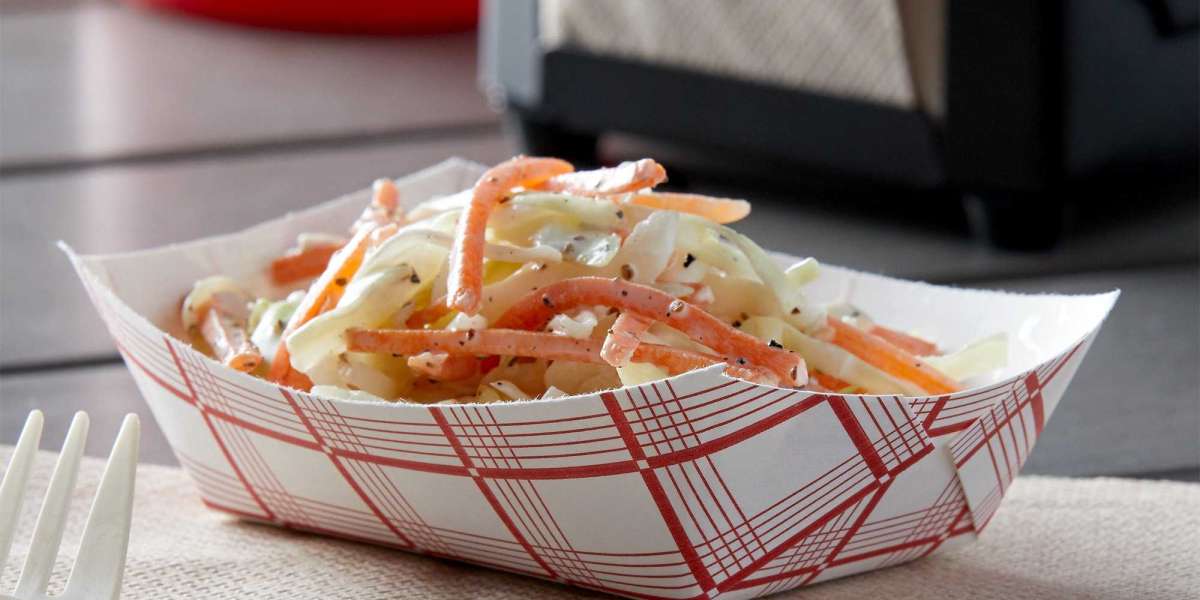Catering equipment is the foundation of professional kitchens, essential for food preparation to cooking and storage tasks. These tools are crucial in ensuring that culinary establishments operate smoothly and efficiently. Technology advancements have introduced various innovative solutions that enhance the quality and efficiency of kitchen operations. Whether used in small cafés or large restaurants, the right equipment plays a pivotal role in maintaining high standards. The importance of Simco Catering Equipment cannot be overstated, as it significantly impacts the speed and quality of service delivered. This exploration will cover various aspects, from different types of equipment to the latest industry trends, providing a comprehensive understanding of their role in modern culinary environments.
Understanding Catering Equipment
Catering equipment encompasses various tools and appliances fundamental to operating a professional kitchen. This category includes essential items such as ovens, stoves, refrigerators, and freezers, each playing a critical role in food preparation, cooking, and storage. Effective use of catering equipment ensures that kitchens can meet the demands of high service volumes while maintaining quality and efficiency.
Each piece of equipment is designed to facilitate specific culinary tasks., from large industrial appliances to smaller, specialized tools. Understanding the purpose and functionality of different catering equipment enables culinary professionals to optimize their kitchen workflows and maintain high food service standards.
Types of Catering Equipment
Exploring various categories of catering equipment reveals the diversity of tools available. Cooking equipment includes ovens, fryers, and grills, essential for preparing multiple dishes. Refrigeration equipment, including freezers and chillers, is crucial for preserving ingredients and maintaining food safety.
Storage equipment, like shelving units and containers, is indispensable for keeping a kitchen organized and efficient. Additionally, small equipment encompasses handheld devices and utensils that facilitate various culinary tasks, while large equipment refers to major appliances that form the backbone of the kitchen. Each equipment category serves a specific function, contributing to professional kitchens' overall efficiency and productivity.
Choosing the Right Equipment
Selecting appropriate catering equipment requires thoroughly evaluating various factors, including kitchen dimensions, menu specifications, and projected service volume. Matching equipment capabilities with the establishment's operational needs is essential to ensure seamless workflow and high service standards. Budget considerations also play a crucial role, as investing in durable and efficient equipment can yield long-term benefits despite higher upfront costs.
Additionally, it is important to assess the quality and reliability of equipment from multiple sources to make well-informed decisions. Catering businesses can optimize their investments and maintain effective kitchen operations by considering these aspects.
Energy Efficiency and Sustainability
Energy efficiency and sustainability are vital considerations in contemporary catering operations. Choosing energy-efficient catering equipment can lead to substantial cost savings and a reduced environmental footprint. This involves selecting appliances with high energy ratings and incorporating eco-friendly materials in the manufacturing process. Utilizing equipment designed with energy-saving features, such as programmable settings and efficient insulation, enhances overall operational efficiency.
Adopting practices like regular maintenance and optimal usage can improve energy performance. Emphasizing sustainability aligns with growing environmental awareness and consumer preferences, helping businesses demonstrate their commitment to responsible practices. By integrating energy-efficient and sustainable equipment, catering operations can achieve long-term benefits in cost management and environmental impact.
Maintenance and Longevity
Routine maintenance is crucial for extending the lifespan of catering equipment. Regular cleaning helps prevent the build-up of grime and ensures optimal performance. Timely repairs and component replacements address minor issues before they become major problems, maintaining the functionality of the equipment. Refrigeration units, for instance, benefit from periodic defrosting to maintain efficiency, while cooking appliances might require regular calibration.
A consistent maintenance schedule ensures equipment remains in peak condition and minimizes the risk of unexpected breakdowns. By prioritizing these practices, catering operations can reduce downtime and enhance the reliability of their equipment, ultimately supporting the smooth running of the kitchen.
Innovations in Simco Catering Equipment
Technological progress has significantly influenced the development of catering equipment, introducing features designed to enhance efficiency and service quality. For instance, induction cooking technology offers precise temperature control, improving the consistency of dishes while reducing energy consumption. Automated kitchen appliances, such as programmable ovens and smart fridges, streamline operations by allowing remote monitoring and control.
Additionally, advancements in materials have led to the creation of more durable and hygienic surfaces, reducing the risk of contamination. Simco Catering Equipment designed for multifunctionality also enables kitchens to maximize their space and adapt to varying culinary requirements. These innovations are shaping modern catering practices and setting new standards for performance and sustainability.
Safety Standards and Regulations
Adhering to safety standards and regulations in the catering industry is paramount to prevent workplace accidents and ensure a safe environment for all. Catering equipment must meet rigorous health and safety guidelines encompassing proper installation and routine maintenance. Regular inspections and adherence to manufacturer instructions are crucial for identifying potential hazards and mitigating risks.
Additionally, implementing safety protocols, such as training staff in the correct usage of equipment and conducting periodic safety drills, enhances overall workplace safety. Compliance with these standards not only protects employees but also contributes to the establishment's reputation for reliability and safety. Understanding and applying these regulations is essential for maintaining a secure and efficient kitchen environment.
Catering Equipment for Specialised Needs
Catering equipment designed for specialized needs caters to the distinct requirements of various culinary establishments. For instance, a sushi restaurant might utilize unique refrigeration systems for optimal fish storage, while a bakery may depend on specific types of ovens and mixers. Customized solutions are also available for businesses requiring bespoke equipment to align with their unique service offerings.
These tools are critical for addressing specific culinary techniques and maintaining the high-quality patrons expect. By investing in specialized equipment, kitchens can ensure they meet the diverse demands of their clientele, enhancing their capacity to deliver exceptional service tailored to their particular culinary focus.
Second-hand vs. New Equipment
Weighing the benefits and drawbacks of second-hand versus new equipment is crucial for culinary operations. Second-hand equipment can offer cost savings and immediate availability, making it an appealing option for new businesses or those with budget constraints. However, these items might have a shorter lifespan and lack manufacturer support or warranties.
Conversely, new equipment typically comes with the latest features and technological advancements, promising higher efficiency and longer durability. These items are also more likely to include comprehensive warranties and customer support services, ensuring peace of mind. Careful consideration of these factors allows catering businesses to make informed decisions that align with their operational and financial objectives.
Training and Skill Development
Proper training is crucial for staff to effectively and safely operate catering equipment, contributing to overall kitchen efficiency. Comprehensive training programs, including manufacturer-led sessions and industry workshops, provide the necessary knowledge and skills for handling diverse kitchen tools. Continuous skill development enhances operational productivity and fosters employee satisfaction and retention. Well-trained staff are better equipped to manage and maintain equipment, ensuring consistent service quality.
Additionally, cross-training employees on various equipment can increase kitchen flexibility, allowing for seamless operation even during peak times. This strategic approach to training and development ultimately supports the establishment's ability to deliver high standards of culinary service.
Evaluating Supplier Options
Selecting a reliable supplier for catering equipment involves thoroughly assessing various factors.
- Firstly, the supplier's reputation in the industry is a critical indicator of their reliability and the quality of their products. Reviewing customer feedback and industry ratings to gauge a supplier's performance is important.
- Secondly, the range and quality of products offered are essential considerations; suppliers with a comprehensive selection can cater to diverse kitchen needs.
- Thirdly, the level of customer support and after-sales service provided by the supplier plays a significant role in ensuring the longevity and proper functioning of the equipment. Prompt and effective support services can mitigate potential downtime and operational disruptions.
- Additionally, establishing a strong relationship with suppliers can result in benefits such as preferential pricing and early access to new products.
Therefore, evaluating these factors thoroughly helps culinary establishments build a dependable network of suppliers, which is essential for maintaining efficient and high-quality kitchen operations.
Future Trends in Catering Equipment
Future catering equipment trends focus on integrating advanced technologies to enhance operational efficiency and quality. The adoption of Internet of Things (IoT) technology is becoming more prevalent, allowing for real-time monitoring and remote control of appliances. Additionally, there is a growing emphasis on multi-functional equipment that maximizes kitchen space and adapts to diverse culinary requirements.
Innovations like self-cleaning systems and automated processes aim to reduce manual labor and streamline kitchen operations. Sustainability continues to be a key focus, with new equipment designed to be more energy-efficient and environmentally friendly. By embracing these advancements, culinary establishments can stay ahead of industry developments and improve service delivery.
Conclusion
Simco catering equipment, and catering equipment in general, forms the backbone of efficient and high-quality professional kitchens. Understanding the types, choosing wisely based on needs, and prioritising energy efficiency and maintenance are crucial. Innovations are constantly evolving the industry, emphasizing automation and sustainability. Adhering to safety standards and investing in proper training are paramount. Selecting reliable suppliers ensures a smooth operation, while staying abreast of future trends allows culinary businesses to remain competitive and effective.
FAQ's
What are the key categories of catering equipment that are essential for the smooth operation of a professional kitchen?
Key categories include cooking equipment like ovens and fryers, refrigeration equipment such as freezers and chillers for food preservation, storage equipment for organisation, small handheld tools and utensils, and large appliances that form the kitchen's core infrastructure.
What are the most important factors that culinary businesses should evaluate when choosing the right Simco Catering Equipment for their specific needs?
Businesses should thoroughly evaluate their kitchen's size and layout, the specific requirements of their menu, the anticipated volume of service, their budgetary constraints, and the quality and reliability of the Simco Catering Equipment offered by different suppliers.
Why are energy efficiency and sustainability becoming increasingly important considerations when investing in catering equipment?
Energy-efficient equipment can lead to significant long-term cost savings on utility bills and helps reduce the business's environmental footprint, aligning with growing consumer and regulatory emphasis on sustainable practices.
What are some of the recent innovations in catering equipment that are enhancing efficiency and service quality in professional kitchens?
Recent innovations include induction cooking for precise temperature control, automated appliances with remote monitoring, the use of more durable and hygienic materials, and multi-functional equipment designed to maximise space and adaptability.
Why is regular maintenance and proper training for staff on catering equipment so crucial for the success of a culinary operation?
Regular maintenance extends the lifespan of the equipment, ensures optimal performance, and minimises the risk of unexpected breakdowns, while proper training enables staff to operate the equipment safely and efficiently, contributing to productivity and consistent service quality.
Related Business Listings |







